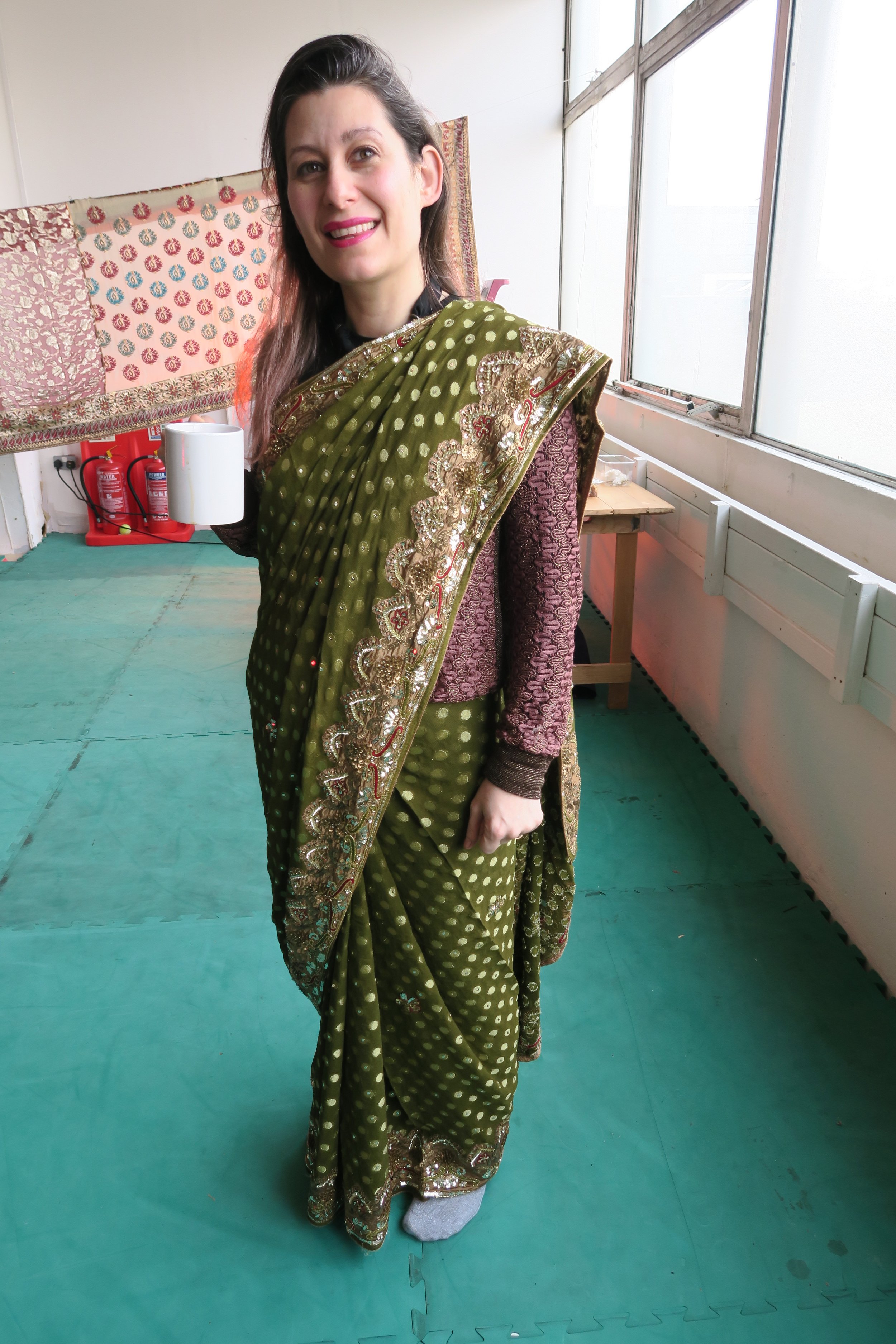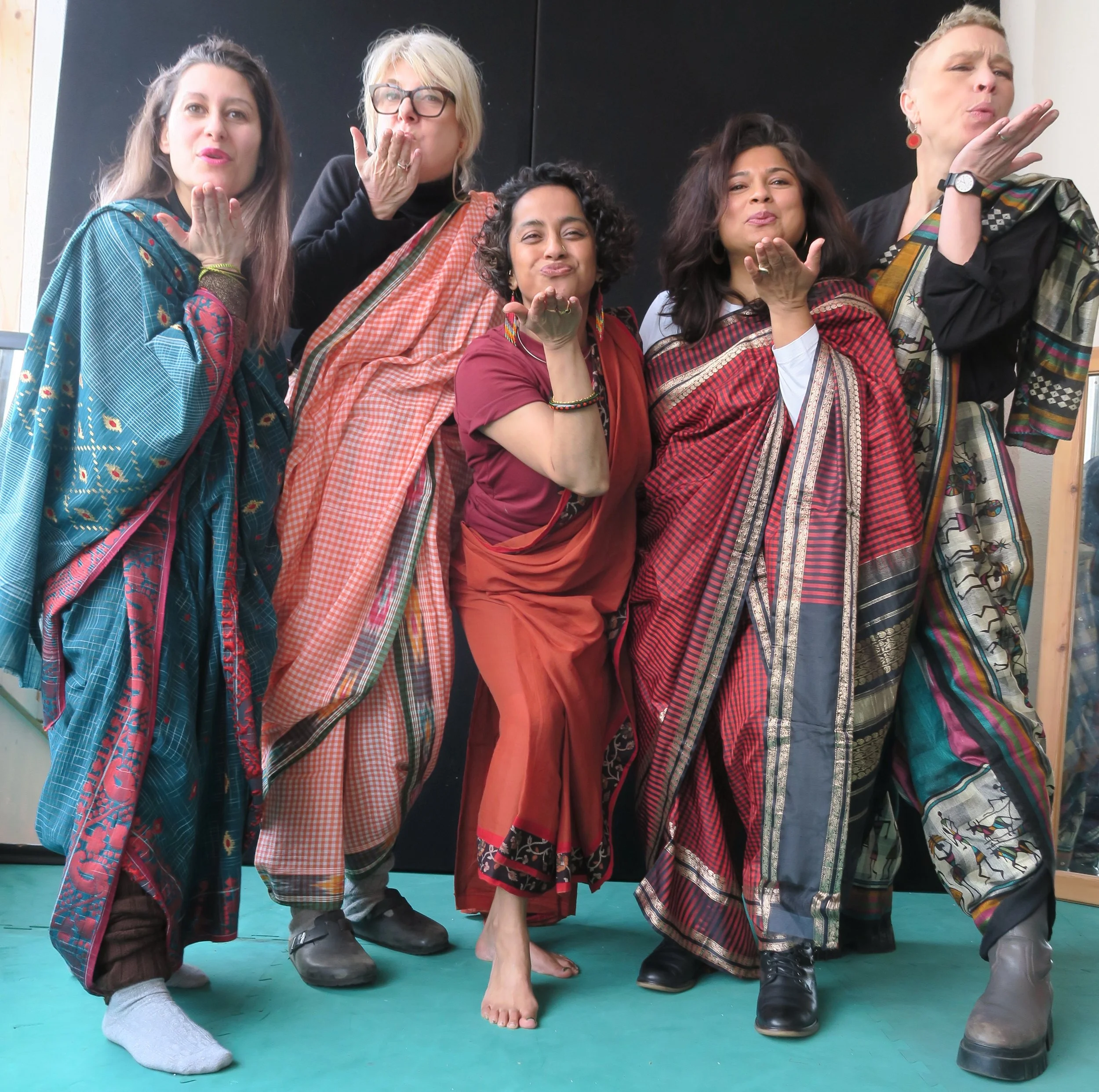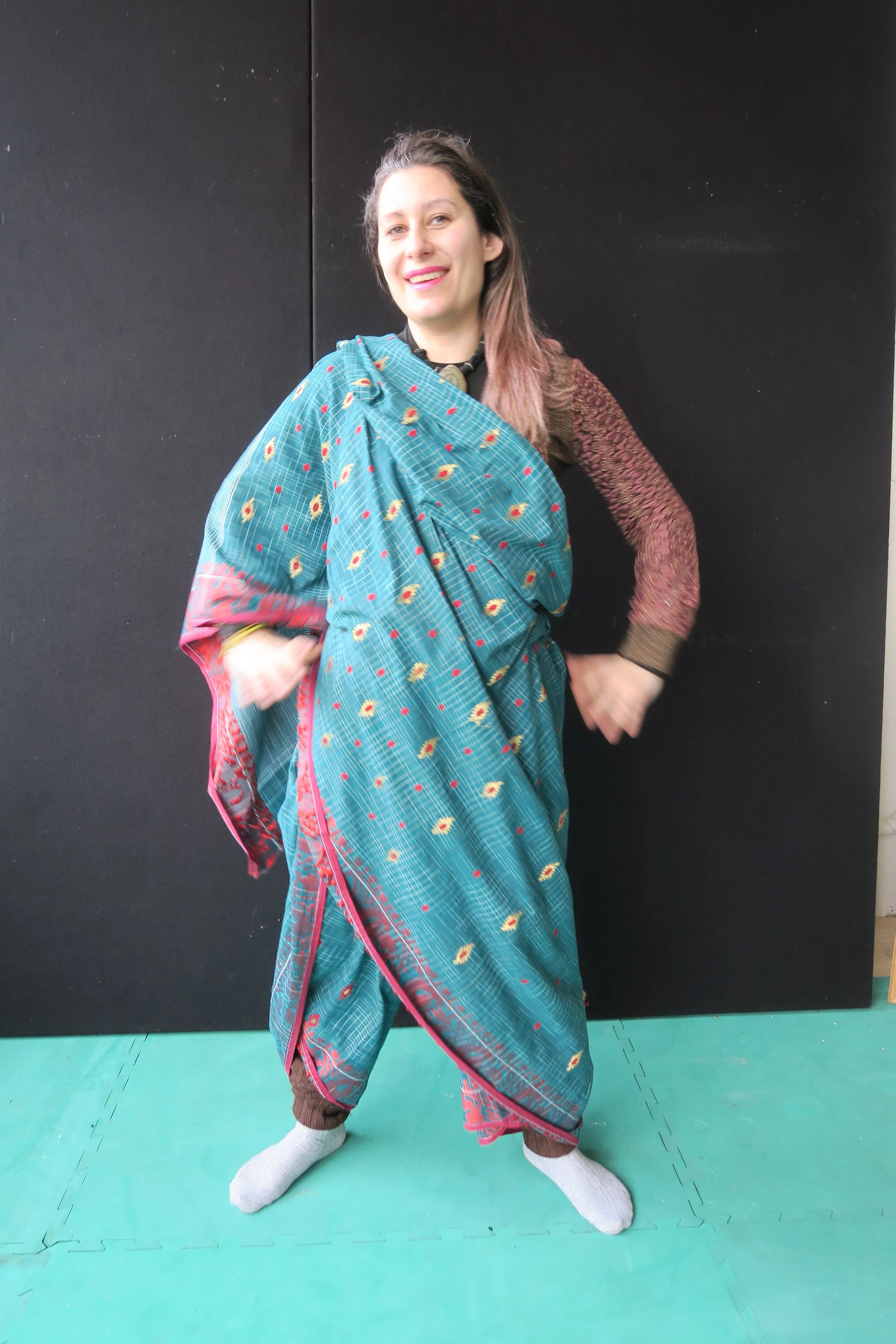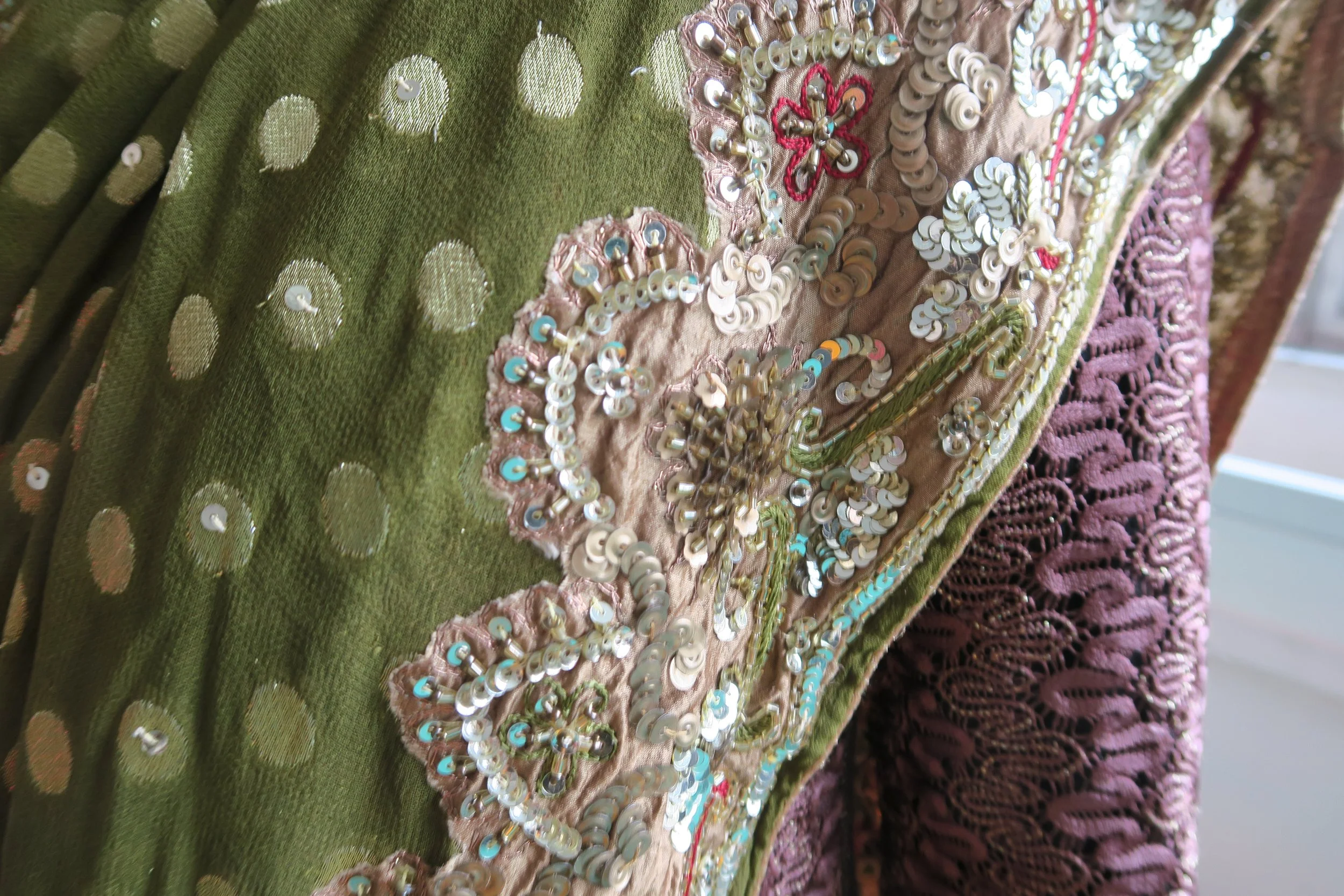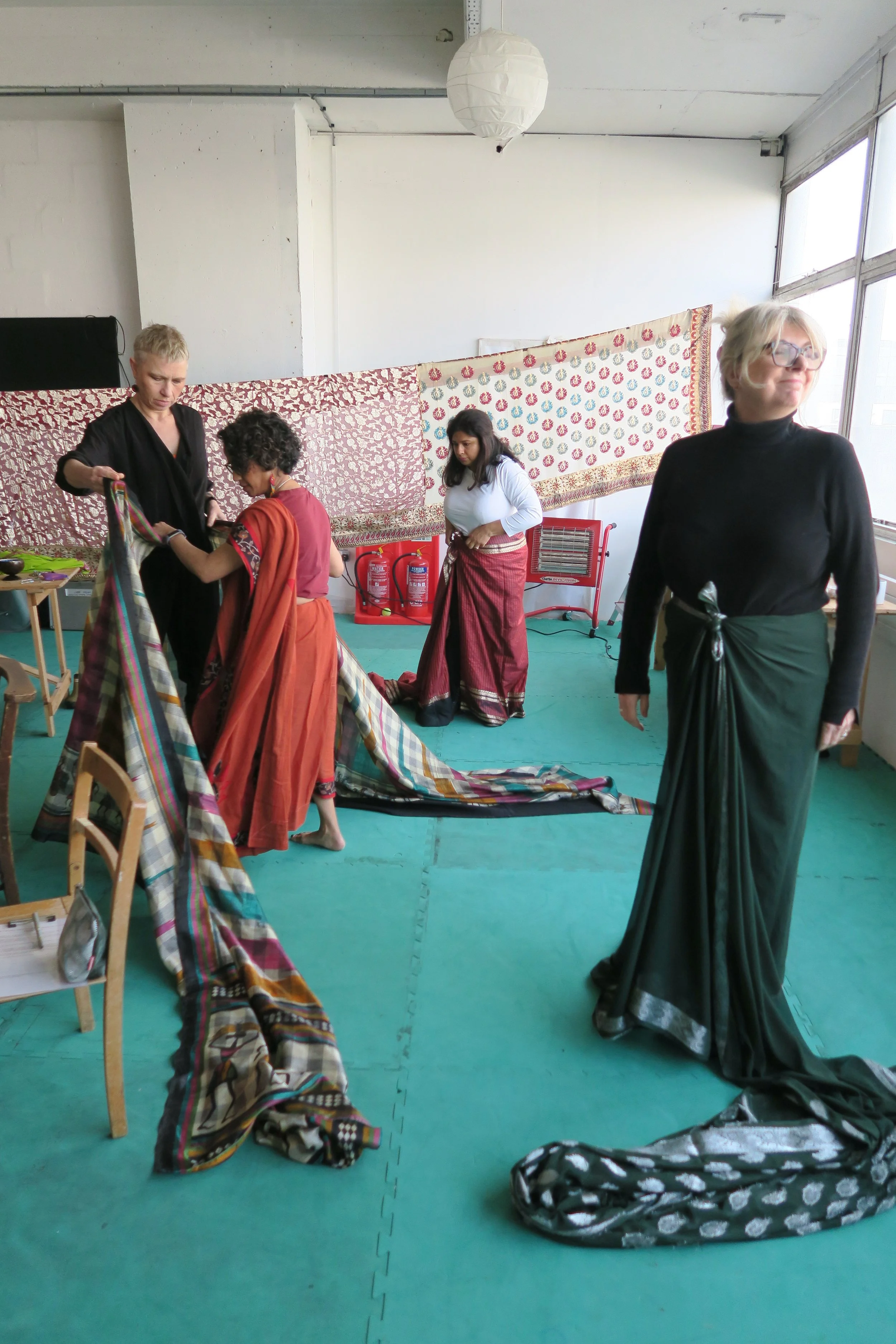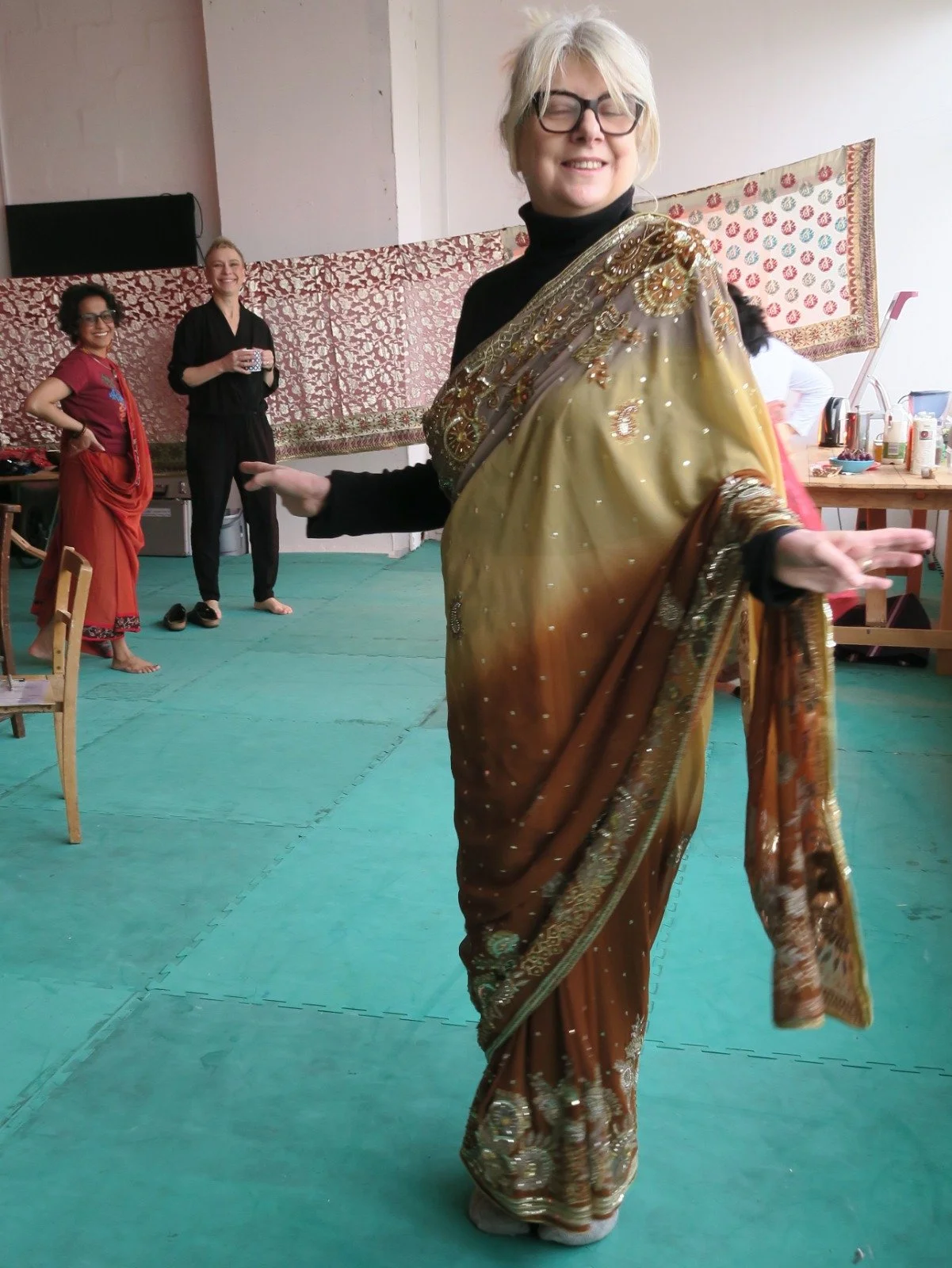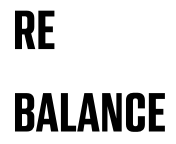Orange Collective
On the 27th January 2024, we delivered a bespoke Funshop to the Orange Collective; a community of arts and mental health practitioners. The afternoon involved learning about saree weaves and playing around with different drapes.
It was an honour for us to support the Orange Collective and their ethos of improving mental health through creative engagement and community. The afternoon was relaxed and intimate, allowing us to really explore what self-expression and identity looks like for us.
Snapshot…
The Funshop…
Orange Collective is a community of arts practitioners and mental health practitioners who collaborate to create workshops, peer support sessions, and reflective practice sessions, designed to improve mental wellbeing through creativity.
Our Funshop for the Orange Collective took place within an art studio, setting the scene for our imaginations to run wild. The studio walls were lined with patterned saree fabrics and participants were draped into colourful sarees upon arrival, which brightened up the gloomy January day. The Funshop invited participants to be creative and experimental with how they wore the saree.
One participant reflected that the Funshop made her feel ‘child-like’, as it gave her the opportunity to be playful. Another attendee shared that the Funshop made her realise how much she missed getting to spend time dressing up with her female friends. It was a real joy for us to see the participants connect with one another creatively and let their inner child roam free.
The participants were shown multiple drapes and invited to try them all, but they were first draped into the nivi drape, one of the most popular draping styles in the Indian sub-continent. The modern nivi drape has a distinct feminist history; it was worn by Indian women campaigning in the public sphere for Indian independence in the mid-twentieth century. It quickly became the visual representation of gendered modernity.
Nearly all the participants reflected that wearing the saree and learning of its history gave them a sense of female solidarity. We love that the saree was recognised by the participants as a symbol of power and unity.
Our group conversations were fruitful and inspired. We talked about the plethora of ways that sarees can be produced; learning about weaves such as the Ikat weave, Jamdani, and the Gamcha saree. We thought about how we can support artisans who uphold the artistry behind the garments. This conversation led us to think about cultural appropriation and how to engage with cultures unfamiliar to our own in an ethical and kind way.
The Experience…



